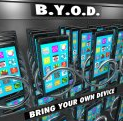I smiled when I first read the Google Buzz announcement on February 9. I liked what I saw about a new online sharing experience, something to compete with Twitter and Facebook.
I’m always game for testing new things out, being an early adopter of online media tools. People asked me what I thought, what I liked; and I was so excited with my initial experiments that I wrote a roundup blog post three days later wherein I elaborated why Google Buzz is so important.
I enjoyed writing that. The same day, though, folks like Alex Howard wrote about privacy concerns with Buzz. I guess the taste of the Google Buzz Kool-Aid captivated me.
Google Buzz remains important — but not for reasons I fathomed 10 days ago. There are too many faults, primarily because Google failed to follow the modus operandi of social media: ask your customers first.
Buzz product manager Todd Jackson admits his team screwed up. In an interview with the BBC, he said one reason is because Buzz was tested by 20,000 Google employees and affiliates but not the general public. The other reason is...
I smiled when I first read the Google Buzz announcement on February 9. I liked what I saw about a new online sharing experience, something to compete with Twitter and Facebook.
I’m always game for testing new things out, being an early adopter of online media tools. People asked me what I thought, what I liked; and I was so excited with my initial experiments that I wrote a roundup blog post three days later wherein I elaborated why Google Buzz is so important.
I enjoyed writing that. The same day, though, folks like Alex Howard wrote about privacy concerns with Buzz. I guess the taste of the Google Buzz Kool-Aid captivated me.
Google Buzz remains important — but not for reasons I fathomed 10 days ago. There are too many faults, primarily because Google failed to follow the modus operandi of social media: ask your customers first.
Buzz product manager Todd Jackson admits his team screwed up. In an interview with the BBC, he said one reason is because Buzz was tested by 20,000 Google employees and affiliates but not the general public. The other reason is because it was assumed GMail users would like the Buzz integration, and nobody thought about offering the tool to non-GMail users.
The kicker of the interview (to me) is in this extract:
Many of the firm’s new services are tested by the so-called Google Trusted Tester program, a network of friends and family of Google employees who are given confidential access to products before they launch.
Buzz was not tested by this program.
Why not? I think that would have cured many of the ailments people are blogging and tweeting and complaining around the web. But hey. There’s something to be written here about hindsight being 20/20.
I didn’t like the fact that Buzz tied itself into my GMail program nor that my Google profile had a specific Buzz tab. After following directions how to separate myself from Buzz, my email and profile experiences were clean.
I don’t agree with the groundswell that Google Buzz sucks, but there are some deficiencies that need to be corrected. Maybe I’ll try out Buzz again if and when it launches as a stand-alone program, like Google Earth or Google Reader. Until then, I’ll watch from afar.
If you want to dissociate your account from Buzz, you need to:
1. Edit your profile and click the red link at the bottom to delete it.
2. Confirm your selection on the next screen. That deletes it from your profile.
3. Log into GMail, scroll to the screen bottom, and click “turn off Buzz.”
4. Click into your GMail settings and uncheck the button to display Buzz.
5. Refresh your page and it’s gone.







